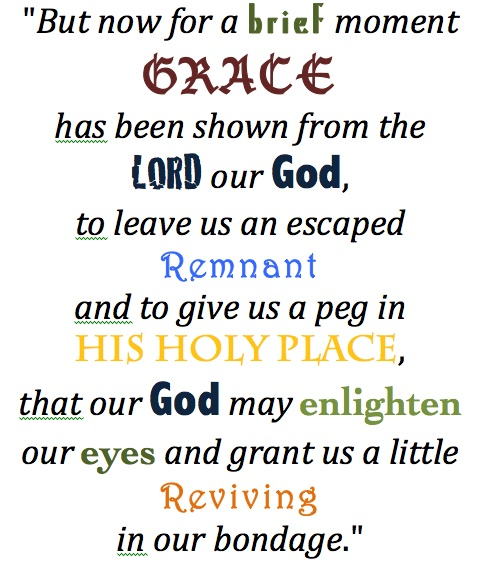"Woe unto them that decree unrighteous decrees, and to the writers that write perverseness; to turn aside the needy from justice, and to rob the poor of my people of their right, that widows may be their spoil, and that they may make the fatherless their prey! (Isaiah 10:1-2)
In an article entitled “CREEDBOUND MINDS”, Robert F. Turner asked “What is a creed?” He then stated that the word comes from the Latin “credo” which means, “I believe”. He then observed that creeds are concise statements of belief, or doctrine, which identify the ‘position’ of the maker.
Mr. Turner wrote: [It may be that the first creeds were formulated in an effort to combat what was believed to be error; to state with clarity some matter that was being questioned; or simply an unashamed affirmation of principles upon which certain ones stood.]
Not all creeds are wrong. Decrees were made by the apostles and elders in Jerusalem (Acts 15). These decrees were in essence, a creed. They were stating the convictions of the apostles and elders. These decrees were formulated and written down to be presented to Christians throughout the world at that time. They were delivered by Paul and Timothy in their preaching and in their epistles. “And as they went on their way through the cities, they delivered them the decrees to keep which had been ordained of the apostles and elders that were at Jerusalem.” (Acts 16:4).
The interesting thing about these decrees was that they established a standard for all churches to follow. These were divinely inspired decrees, not mere ‘statements of faith’ that identified differences of beliefs on the Bible. These decrees were not designed to establish a church other than the one Christ built (Matthew 16:18). They were not for the purpose of establishing ‘another faith’ but were intended to be “the faith” for all to strive together to defend (Philippians 1:27). These decrees were not “another gospel” but THE gospel (Galatians 1:6-9). These decrees were the standard for faith and practice.
However, as was true before, during, and after Isaiah’s time, there are those who decree ‘unrighteous’ decrees. It continues today. The decrees Isaiah was referring to were man-authored creeds. As Mr. Turner observed, [The error of “man-written creeds” is (1) man’s presumption to shorten, lengthen, alter, or better arrange God’s revelation of truth; and (2) the setting up and acceptance of some man’s “I believe” as a standard of right and wrong.] God’s word is a sufficient creed. It is the only creed that has authority to save (Romans 1:16). It is also the only creed with the authority to pronounce anathema on all other creeds (Galatians 1:8-9).
A statement of belief does not guarantee that the gospel decrees are being practiced. For example, notice the following quotes/admissions from the past:
Martin Luther – “We must not explain the
Scriptures by the Fathers, but explain and judge the Fathers by the
Scriptures.”
Lutheran Creed – “The only way to settle doctrinal
questions is to show what the Bible teaches.”
Methodist Creed (1948) – “The Holy
Scriptures contain all things necessary to salvation; so that whatsoever is not
read therein, nor may be proved thereby, is not to be required of any man that
it should be believed as an article of faith, or be taught requisite or
necessary to salvation.”
Presbyterian Creed (1949)
– “The whole counsel of God, concerning all things necessary for his own glory,
man's salvation, faith and life, is either expressly set down in the scripture,
or by good and necessary consequences may be deduced from scripture; unto which
nothing at any time is to be added, whether by new revelation of the Spirit or
traditions of men.”
Baptist Creed (1950) – “We
believe that the Holy Bible was written by men divinely inspired, and is a
perfect treasure of heavenly instructions; that it has God for its author,
salvation for its end, and truth without any mixture of error for its content.”
Alexander Campbell (1839) – “We take the Bible, the whole Bible, and nothing but the Bible as the foundation of all Christian union and communion. Those who do not like this will please show us a more excellent way.”
In view of the statements above, Mr.
Turner concluded: [Now
these quotations all seem to agree that God's Word is all sufficient as the
Bible teaches it to be. It’s evident that each of these has drifted from where
they first began, and that is to stand firmly on biblical authority (2 Peter 1:3). Any doctrine that
requires more than the Bible or less than the Bible denies the all-sufficiency
of the Bible, and is proof that the doctrine derives from man, and not from
God. Anyone who abides NOT in the DOCTRINE of CHRIST has NOT GOD (2 John 1:9). And if we have NOT GOD, we
don’t have SALVATION (John 14:6; Romans
6:23).]
5/29/22






